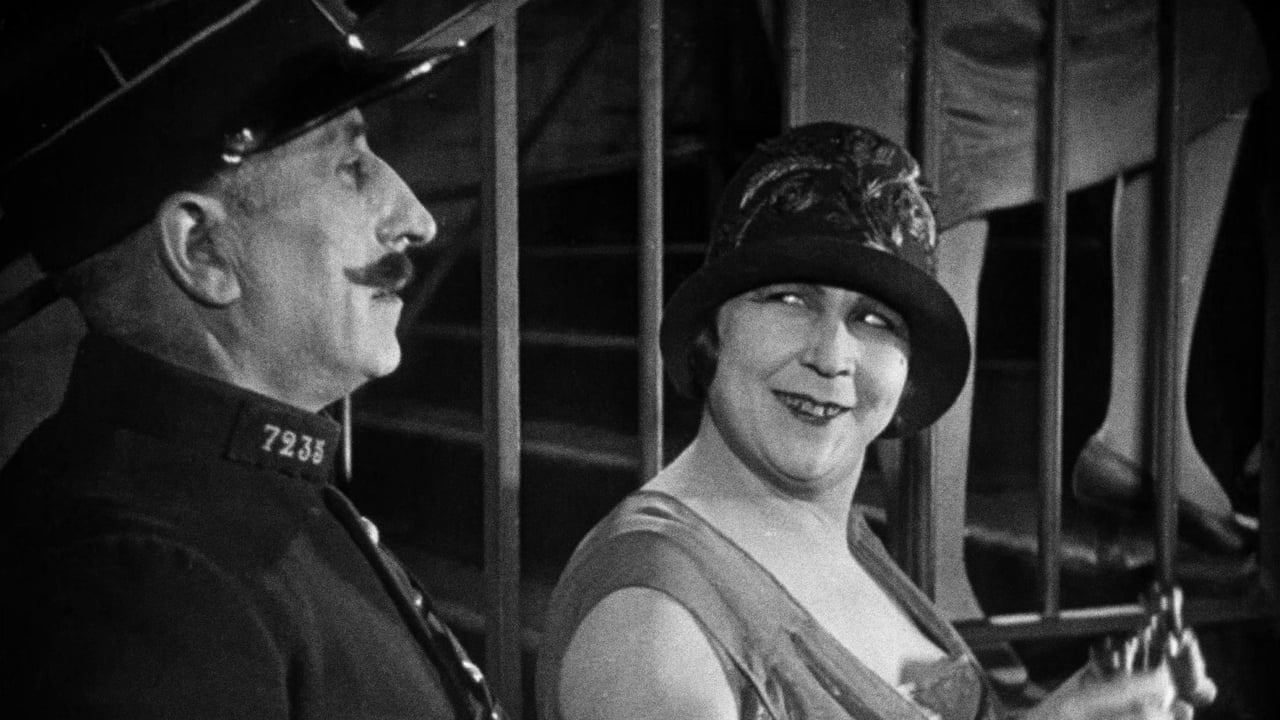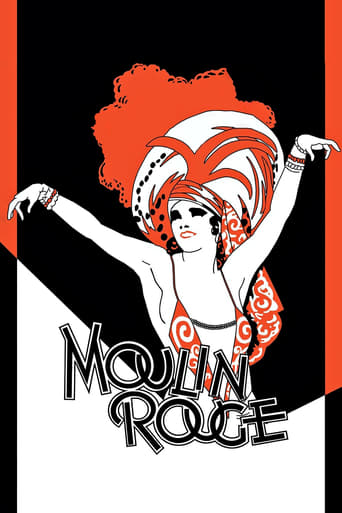

What makes it different from others?
... View MoreLack of good storyline.
... View MoreThe tone of this movie is interesting -- the stakes are both dramatic and high, but it's balanced with a lot of fun, tongue and cheek dialogue.
... View MoreThrough painfully honest and emotional moments, the movie becomes irresistibly relatable
... View MoreParis's iconic Moulin Rouge has proved an inspiration to many filmmakers down the years, including the likes of Jean Renoir, Baz Luhrmann and Woody Allen, who were all clearly fascinated by the venue's vibrant cabaret act and reputation as the home of the modern can-can. You would have to go all the way back to 1928 to witness one of cinema's earliest (if not the earliest) brush with the Moulin Rouge, although the scenes of the dancing girls bare little resemblance to the famous hangout. German-born director Ewald Andre Dupont made films in both Hollywood and London, and is perhaps best known for Variete and Piccadilly, but he also made this little-seen melodrama, filmed at Elstreet Studios, in 1928.The star attraction at the city's most popular hangout is undoubtedly Parysia (Olga Tschechowa), a striking lady who performs to an adoring crowd on a nightly basis, dazzling the audience with songs, dances and shakes of her feathers. She is over the moon when she receives a letter from her daughter Margaret (Eve Gray) announcing her pending arrival. Parysia hasn't seen her child for a few years since she left for boarding school, and she's all grown up with a new man at her side. That man is Andre (Jean Bradin), who believes that he's met the perfect partner until he witnesses his future mother-in-law's stage performance for the first time. Andre falls in love, and declares his feelings to the shocked Parysia, who is determined to see her daughter happy by setting off to persuade Andre's stern, rich father than Margaret is worthy, despite his distaste for the goings-on at the Moulin Rouge.Dupont's forgotten silent is a strange beast. It is essentially a rather relentless melodrama with little insight into human behaviour, which climaxes with a breathtaking high-speed car chase that would put many modern-day blockbusters to shame. At the film's centre is the odd love triangle between mother, daughter and a handsome charmer, but Dupont ignores the fact that Parysia would realistically want her offspring as far away from this letch as soon as possible once he declares his undying love for the mother of his fiancee. For a movie entitled Moulin Rouge, there's very little of what the venue is best known for, aside from a bit of uncomfortable black-face. From a technical standpoint, it is absolutely wonderful, with the director making full use of his leading star with close-ups and effective camera movements. Tschechowa is a legend of silent cinema, and it isn't difficult to understand why she was courted by the likes of Adolf Hitler and Joseph Stalin. For the most part, this is pretty dull stuff, but the climax will leave you breathless and hugely impressed.
... View MoreEveryone knows E.A. Dupont's Variety (1925) even in Paramount's somewhat abbreviated USA version on a rather dark but quite watchable 7/10 Grapevine DVD. Karl Freund's astounding photography combined with the noirish script, Janning's powerful Boss Huller, Lya de Putti's sensual Bertha and Warwick Ward's spivy Artinelli - all molded into an atmosphere maelstrom by E.A. Dupont - make this one an absolutely rivetting must-see! But I regard Dupont's Moulin Rouge (1928) as the better movie. It is also available from Grapevine in a 7/10 - no, make that an 8/10 DVD because it does have the original music and sound effects track plus the run-out music. This one stars that absolutely gorgeous Russian, Olga Tschechowa, as the mother who quite puts her movie daughter, Australian actress, Eve Gray, in the shade. If the movie is somewhat predictable in plot, it is always brilliantly off-beat in both its montage and directorial style, thanks to the charismatic genius of writer/producer/director (and no doubt supervising film editor) Dupont. The musical interludes are an intrinsic part of the plot. Here they are breathtakingly realized right from the night-montage opening to the dramatic conclusion.
... View More"Moulin Rouge" is the sort of film you simply must accept for what it is--a modestly entertaining but silly film. It has the sort of plot that seems rather old fashioned and filled with holes.When the film begins, a famous stage actress from the famed Moulin Rouge is thrilled to have a visit from her daughter. It seems the young lady is planning on getting married and the mother is happy for the couple. However, later when the mother is alone with the girl's fiancé, he suddenly declares his love for the mother! Weird, I know...and where all this goes is a bit far-fetched. It is exciting but kind of silly.This film brings up lots of problems: why didn't the mother tell her daughter that the boyfriend was a creepy guy and why did the nightclub look NOTHING like anything from the Moulin Rouge (after all, everyone here had lots of clothes)? And, for that matter, why a black-face number?! It all is kind of silly (and a tad offensive) but did have really nice camera-work.
... View MoreEwald Dupont's final silent effort is one of his best combining firmly controlled direction and editing, highly stylized and innovative camerawork by Werner Brandes, along with a magnificent performance by the female lead, the great German actress Olga Tschechowa. Filmed in part at the Lido De Paris during an international review, the film is valuable to any who are deeply interested in social and cultural history as the Parisian scenes are fascinating and blend seamlessly with the scenario, which relates of a young French nobleman's erotic fascination for an actress, the mother of his betrothed. Although the plot is essentially melodrama, we are never far from the perception of reality, as Dupont does not permit whim to his actors, with the result that each glance and movement, if edited away, would reduce the effect of the story's progression. Cinematographer Brandes makes correct use of the Stanislavsky trained Tschechowa's striking features, since she is the linchpin of the film's considerable energy, although even the small roles in MOULIN ROUGE are handled in more than creditable fashion.
... View More